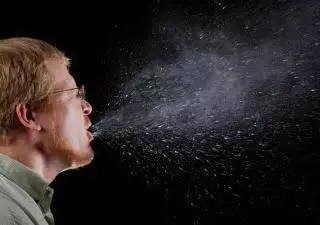
Children breathe out fewer aerosols making them less likely to transmit Covid: study
text_fieldsA team of researchers at the Charité University Medicine Berlin have published a study which suggests that primary school children are less likely to sneeze or breathe out large amounts of 'aerosols' or airborne droplets which have been identified as a major source of spreading Covid-19.
This means young children are much less likely to spread the infection to others, the researchers posited. Their results, published in the the Journal of the Royal Society Interface, has been confirmed by other studies around the world.
Dr Mario Fleischer at Charité University Medicine Berlin, and colleagues recruited 16 healthy children aged eight to 10 and used a laser particle counter to measure how many aerosol-sized particles they emitted when breathing at rest, and during speaking, singing and shouting.
Shouting produced the most particles, followed by singing, speaking and then breathing. However, particle emission rates and volumes for singing, speaking and breathing were around four times lower for children, compared with measurements taken from 15 adults.
"More precisely, children emitted [particle rates and emissions] during speaking of the same order of magnitude as adults breathing, and while singing, they emitted similar [particle rates and volumes] to the adults while speaking," Fleischer said.
However, the amount of airborne droplets produced by children shouting was comparable to that produced by adults. The researchers said the number of children in a given area as well as the nature of ventilation could also affect how infections were transmitted.
The results were also highly variable around individuals, the study authors said. In schools where the time spent singing our shouting was limited, it was possible to restrict the aerosol emission, they theorised.
The results may be slightly encouraging for parents as children return to schools following the lifting of Covid-19 restrictions
While the resurgent wave of the Omicron variant put many children in hospital in countries like the USA and UK, mortality remains low in the population of infected.
Studies conducted during the lockdown period have found that children are approximately half as susceptible to acquiring COVID-19 as adults.
Scientists have also warned that parents and schools should follow Covid-19 measures like mask wearing and social distancing as children returning to schools come so from a more sterile home and so have not had a chance to acclimatize to the bacteria and infections brought on by contact in schools.























